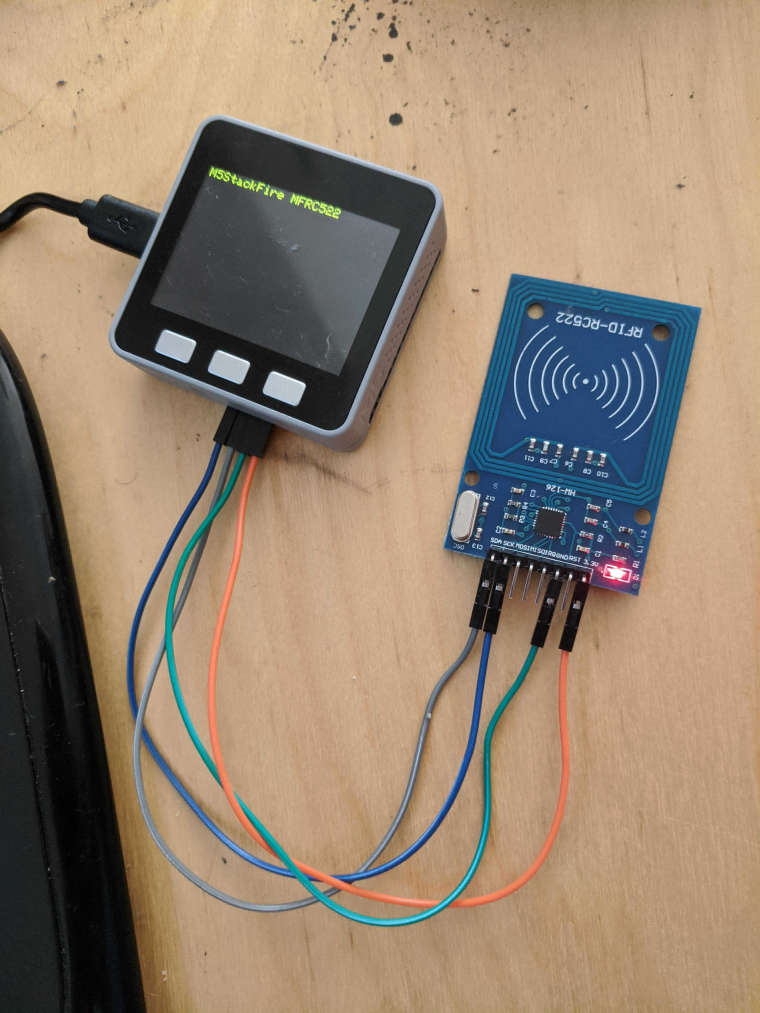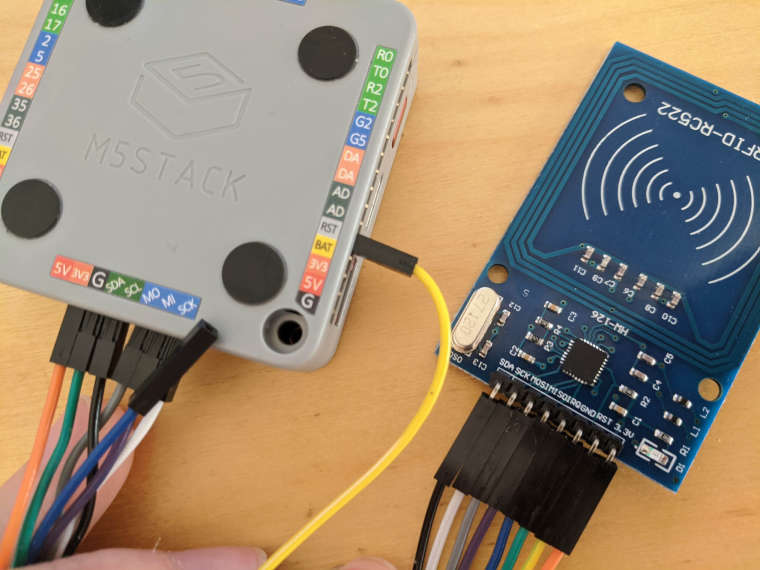Hi Crami,
Many thanks for your response. Unfortunately I don't have a drill so I can't enforce I2C mode. I've tried to change the code to use SPI instead. Now I can't get it to write at all and receive the following errors:
#include "MFRC522.h"
#include <M5Stack.h>
// 0x28 is i2c address on SDA. Check your address with i2cscanner if not match.
MFRC522 mfrc522(0x15, 0x02); // Create MFRC522 instance.
void setup() {
M5.begin();
M5.Power.begin();
M5.Lcd.fillScreen( BLACK );
M5.Lcd.setCursor(0, 0);
M5.Lcd.setTextColor(YELLOW);
M5.Lcd.setTextSize(2);
M5.Lcd.fillScreen( BLACK );
M5.Lcd.setCursor(0, 0);
M5.Lcd.println("M5StackFire MFRC522");
Serial.begin(115200); // Initialize serial communications with the PC
SPI.begin(); // Initialize I2C
mfrc522.PCD_Init(); // Init MFRC522
ShowReaderDetails(); // Show details of PCD - MFRC522 Card Reader details
Serial.println(F("Scan PICC to see UID, type, and data blocks..."));
M5.Lcd.println("Scan PICC to see UID, type, and data blocks...");
}
void loop() {
// Look for new cards, and select one if present
if ( ! mfrc522.PICC_IsNewCardPresent() || ! mfrc522.PICC_ReadCardSerial() ) {
delay(50);
return;
}
// Now a card is selected. The UID and SAK is in mfrc522.uid.
// Dump UID
Serial.print(F("Card UID:"));
M5.Lcd.println(" ");
for (byte i = 0; i < mfrc522.uid.size; i++) {
Serial.print(mfrc522.uid.uidByte[i] < 0x10 ? " 0" : " ");
Serial.print(mfrc522.uid.uidByte[i], HEX);
M5.Lcd.print(mfrc522.uid.uidByte[i] < 0x10 ? " 0" : " ");
M5.Lcd.print(mfrc522.uid.uidByte[i], HEX);
}
Serial.println();
}
void ShowReaderDetails() {
// Get the MFRC522 software version
byte v = mfrc522.PCD_ReadRegister(mfrc522.VersionReg);
Serial.print(F("MFRC522 Software Version: 0x"));
Serial.print(v, HEX);
if (v == 0x91)
Serial.print(F(" = v1.0"));
else if (v == 0x92)
Serial.print(F(" = v2.0"));
else
Serial.print(F(" (unknown)"));
Serial.println("");
// When 0x00 or 0xFF is returned, communication probably failed
if ((v == 0x00) || (v == 0xFF)) {
Serial.println(F("WARNING: Communication failure, is the MFRC522 properly connected?"));
}
}
Errors:
Arduino: 1.8.12, Board: "M5Stack-Core-ESP32, QIO, 80MHz, Default, 921600, None"
Sketch uses 356605 bytes (27%) of program storage space. Maximum is 1310720 bytes.
Global variables use 17628 bytes (5%) of dynamic memory, leaving 310052 bytes for local variables. Maximum is 327680 bytes.
esptool.py v2.6
Serial port COM3
Connecting....
Chip is ESP32D0WDQ6 (revision 1)
Features: WiFi, BT, Dual Core, 240MHz, VRef calibration in efuse, Coding Scheme None
Uploading stub...
Running stub...
Stub running...
Changing baud rate to 921600
Changed.
Configuring flash size...
Warning: Could not auto-detect Flash size (FlashID=0x0, SizeID=0x0), defaulting to 4MB
Compressed 8192 bytes to 47...
Writing at 0x0000e000... (100 %)
Wrote 8192 bytes (47 compressed) at 0x0000e000 in 0.0 seconds (effective 6553.6 kbit/s)...
A fatal error occurred: Timed out waiting for packet header
A fatal error occurred: Timed out waiting for packet header
Can you spot anything I may be doing wrong?


